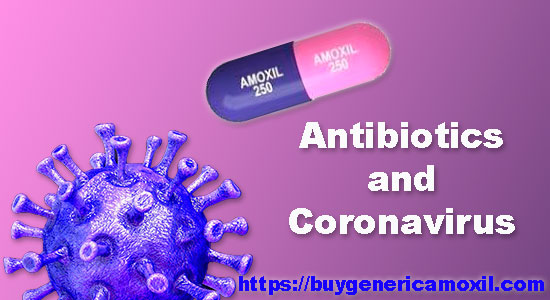The diagnosis of Covid and just the fear of the disease makes people massively buy antibiotics and take them, both at the first signs of a cold, and for preventive purposes. To prevent complications, they are sometimes prescribed even by doctors themselves. However, most experts note that antibiotics for coronavirus in adults and children are justified only in certain cases, and uncontrolled intake is not only useless, but also dangerous. In this article, we will analyze how antibiotics and coronavirus are related, when it is worth taking them and whether it is worth it at all.
Why don’t antibiotics treat Covid-19?
Coronaviruses have been known to science for more than 50 years. They belong to the family of RNA viruses that cause ARVI without serious complications. Covid-19 is a disease caused by a new strain of SARS-CoV-2 coronaviruses, that is, it also has a viral nature of origin.
Antimicrobials are designed to fight bacteria that have nothing to do with viruses. Consequently, they cannot have any effect on diseases of viral etiology. Therefore, to the question of patients: “Do antibiotics help with coronavirus?”, doctors give a negative answer.
And again, they remind you that the use of these funds unnecessarily harms the body. Their reception:
- negatively affects the liver, kidneys, pancreas
- develops resistance of bacteria to antimicrobial drugs. When a bacterial infection is attached, this significantly complicates treatment
- against the background of the use of antiviral drugs from Covid increases the development of side effects
Antibiotics for coronavirus are prescribed only with the development of pneumonia, but even in this case, caution is required.
Antibiotics and coronavirus
In which cases antibacterial agents are necessary
Pneumonia is one of the most severe complications of the coronavirus, manifested by the development of inflammation in the lung tissue. The cause of the disease is an infection. But the infectious process can be caused by both viruses and bacteria. Therefore, before prescribing treatment, examinations are performed to help recognize the nature of the infection.
Even a simple general blood test helps the doctor in this. Also, bacteriological seeding is used to determine the type of microorganism: a smear is taken from the nasopharynx and sown on a nutrient medium.

If it is established that pneumonia is caused by bacteria, the patient is prescribed antibiotics. With a disease of viral etiology, the treatment of pneumonia with coronavirus with these drugs will not be effective.
Most often, antibacterial agents are prescribed in a hospital. Their use is justified by the severity of the patient’s condition. Antibiotics are necessary if observed:
- the temperature is above 38.5 °C for 3 or more days
- of discharge with a cough of yellow or green sputum
- chest pain
- shortness
- of breath leukocytosis
When treated at home, the risk of bacterial infection is not too great, and there is no need for these funds.
What antibiotics are used in the treatment of coronavirus
There is no single treatment regimen for covid and its complications yet. The most effective drugs were established empirically. Today, the list of effective means includes:
- Ceftriaxone is a 3rd generation antibiotic. It has a pronounced antimicrobial effect, reduces the risk of relapses, and has relatively few side effects. It is indicated for pneumonia, therefore it is suitable for the treatment of complications of coronavirus infection caused by bacterial microflora.
- Amoxil – consists of an antibacterial component of amoxicillin and clavulanic acid, which eliminates the resistance of bacteria to the main component. It is effective in the treatment of ENT diseases, pneumonia and sepsis.
- Azithromycin is a potent antibiotic recommended by the Ministry of Health when used in combination with hydroxychloroquine. It has a bactericidal and bacteriostatic effect. Especially often the drug was prescribed in the first months of the pandemic. But now its effectiveness raises doubts among doctors. It is contraindicated in severe forms of hepatic and renal insufficiency, requires caution in cardiac arrhythmias.
- Levofloxacin – destroys gram-positive and gram-negative bacteria. It is used to treat complications of coronavirus infection. It has medium toxicity. It negatively affects the organs of hematopoiesis and the cardiovascular system.
In conditions of mild and moderate severity, the funds are prescribed in tablet form. In severe cases, antibiotics are used for intravenous and intramuscular administration.
After studying this list, it can be understood that the drugs prescribed for the treatment of Covid complications have many contraindications and require caution in use. Therefore, only the doctor decides which antibiotics to take. Their use is justified only by the presence of symptoms indicating the development of bacterial infection.